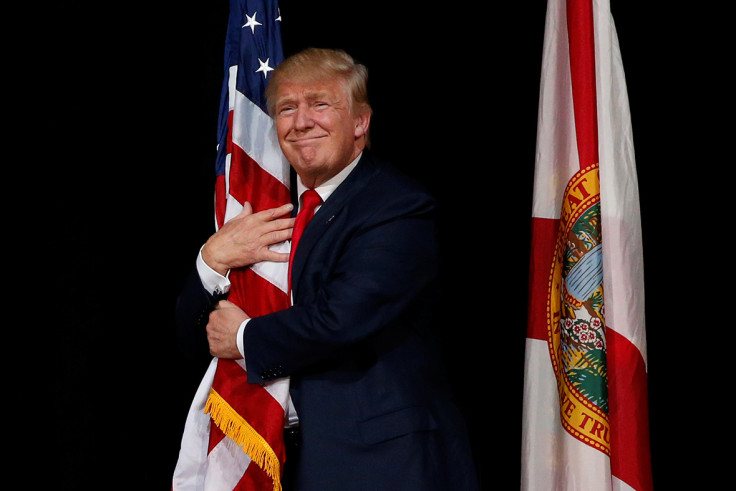We asked a trade expert what will happen if Trump renegotiates America's trade deals
Americans will lose out on cheap goods and could become poorer if trade deals are renegotiated, say experts.

Two economists are voicing their support for Donald Trump's plan to "rip up" trade agreements like NAFTA and the TPP if he becomes president. However, other experts, including the head of America's biggest bank, say it will make Americans poorer.
After ripping them up "we're going to make really good ones," Trump said early this year during a campaign stop in Portland, Maine.
At the end of September the Republican candidate released a seven-point plan that includes renegotiating NAFTA with Canada and Mexico, pulling out of the Trans-Pacific Partnership (TPP) — a pending international trade deal — and labelling China a currency manipulator, among others.
"Ironically that would actually hurt Trump supporters most," said Michael Plouffe, an International Political Economy expert at UCL, of Trump's idea to renegotiate NAFTA. "Things like textiles and apparel would become more expensive," he added, because they would not be made with cheap Mexican labour anymore.
"H&M, Walmart, Target — the things that people would look for something that provides good value — would no longer be good value," he said.
Trump's trade plan "would be very, very harmful," Plouffe continued, because even though it would protect small enterprises it would decrease trade and investment in the economy and in large enterprises "which are associated with overall gains."
The TPP, an even larger trade deal than NAFTA that is waiting to be signed, "would be positive for GDP," said James Dimon, CEO of JPMorgan Chase, the largest of the four biggest American banks, at a talk in September in Washington D.C. "It would be positive for wages. It would be positive for the average American," he said.
"It has negatives, which have to be recognized," Dimon added, saying the deal's impact on smaller business needs to be acknowledged and combined with government "income assistance, redevelopment, relocation, retraining, so that those hurt by it can be made better".
In an opinion piece in the Wall Street Journal today (25 October), economists Wilbur Ross and Peter Navarro defend Trump's economic plan, as well as his tax cuts for some of the very wealthiest Americans. They say his policies will "double" the country's economic growth rate and "generate trillions of additional tax revenues."
To get there "muscular trade negotiations" will "increase exports, reduce imports and eliminate cheating," they said. Hillary Clinton's tax hikes on businesses and wealthy Americans would discourage people from working hard and investing, they said.
However, "one of the things that you see with any trade deal is that larger, more productive firms really benefit," said Plouffe, and "small mom and pop shops lose out."
Of Trump's plan, he said, "there's a lot of fluffy language against the usual antagonists."
© Copyright IBTimes 2025. All rights reserved.






















